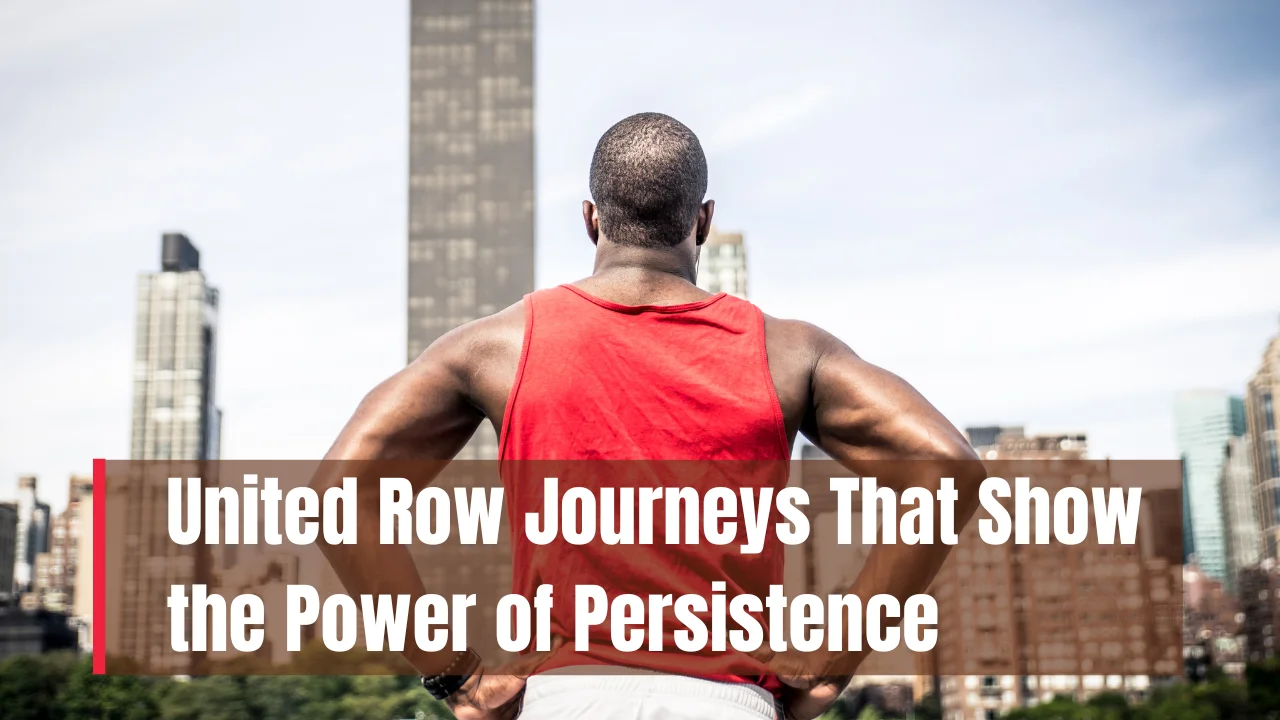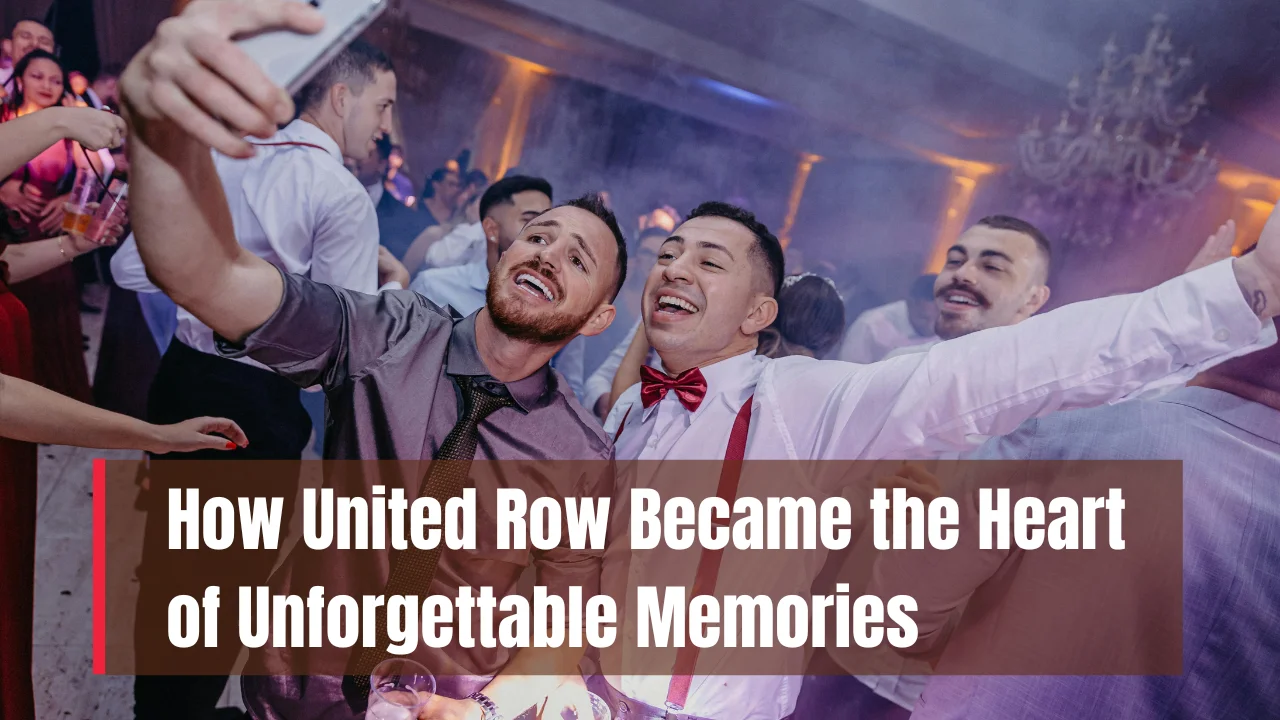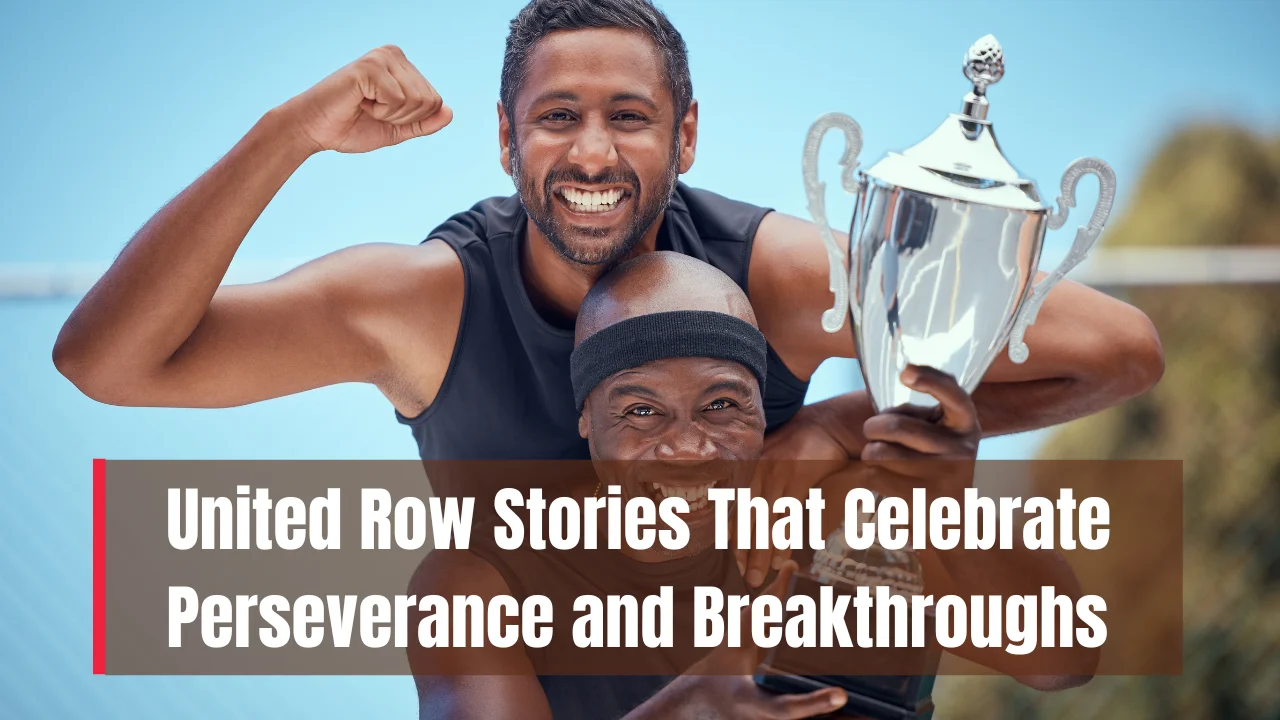United Row: United Row operates on a powerful principle: trust is the true engine behind every stroke. When the stakes are high and milliseconds matter, no amount of physical strength can replace the need for seamless collaboration. The sport of rowing demands more than just endurance—it requires total unity, both mentally and physically. Without trust, even the most well-trained teams risk falling out of sync.
This article dives deep into how United Row successfully builds and maintains trust among its teammates, especially in high-pressure races. We’ll explore how they approach communication, training, emotional support, and leadership, and how these elements contribute to consistent team performance. You’ll learn what truly goes into forming a successful and synchronized rowing team beyond just the surface-level techniques.
How United Row Builds Trust Among Teammates in High-Pressure Races
United Row has developed a reputation for cultivating a team culture centered on mutual respect, mental toughness, and strong interpersonal bonds. Trust in a rowing crew doesn’t just come from daily training—it stems from creating a psychological space where every athlete feels seen, heard, and supported. In high-stakes competitions, this trust becomes their greatest advantage. With focused team-building exercises, transparent communication strategies, and leadership roles that foster mentorship, United Row manages to keep their team locked in—not just with the goal, but with each other. Their unique approach to synchronized performance, even under extreme race-day pressure, stands as a model for other rowing programs looking to create deeper cohesion and more reliable results.
| Overview of Key Strategies | Description |
| Daily Communication Routines | Structured talks before and after practice to build clarity |
| Pressure-Based Simulated Drills | Training under race-day conditions to enhance calm and focus |
| Off-Water Bonding Activities | Shared experiences that deepen team chemistry outside training |
| Mentorship Programs | Veteran rowers guiding new teammates to develop trust fast |
| Emotional Intelligence Training | Teaching awareness and response to team emotions |
Importance of Team Trust in Rowing
Trust is the heartbeat of any successful rowing team, but it’s even more crucial in a competitive environment where every movement must be aligned. Unlike sports with solo performers, rowing is unforgiving when even one member falls out of sync. This is why United Row makes trust their top priority.
Their strategy involves more than just repetitive motion; they create a system where each athlete feels a shared sense of responsibility. They aren’t just pulling oars—they’re moving as one. Through repetition, feedback, and team reflection, trust becomes second nature. And in tense, unpredictable races, that trust is what holds the boat together when pressure peaks.
How United Row Practices Communication
Communication is the silent force behind every great rowing performance. In high-pressure moments, verbal exchanges are minimal, making non-verbal cues even more critical. United Row recognizes this and trains specifically to master both.
The team develops their communication skills with targeted drills designed to mimic real race environments. For example, they’ll practice rowing with intentionally loud distractions or time delays to improve adaptability. The coxswain leads, but each athlete learns to read body language, breathing patterns, and rowing tempo. It’s about listening without hearing, and speaking without words—skills that only come from genuine crew coordination and hours of shared focus.
Building Confidence Through Repetition
Consistency builds belief. One of the most effective tools United Row uses is repetition under varied conditions. It’s not just about logging miles; it’s about learning to operate reliably as a unit under different physical and emotional loads.
By replicating the stress and speed of real competitions in practice, United Row prepares their athletes for anything. This repetition creates not only muscle memory but psychological safety—teammates begin to instinctively trust each other’s timing and resilience. Confidence in your team grows each time you endure challenges together and come out stronger on the other side.
Shared Goals and Accountability
There’s no room for ego in a racing shell. Each member of United Row understands their exact role and how it fits into the bigger picture. The team operates on shared goals, and these aren’t just about winning—they’re about supporting each other’s growth and representing a collective identity.
Accountability plays a major role in building trust. Instead of punishing mistakes, United Row uses them as learning points. When one rower slips, the team rallies to figure out why and improve. This approach encourages openness and prevents blame. Everyone is held to the same standard, which strengthens team chemistry and fuels progress.
Key Methods United Row Uses to Build Trust
- Daily Team Check-ins
Brief group talks before and after training help set the tone, air concerns, and share encouragement. These discussions create space for honest reflection and prevent tension from building up unnoticed. - Team Bonding Activities
Whether it’s hiking, casual dinners, or team-building games, these off-water experiences allow athletes to connect beyond their roles. When relationships deepen outside of training, trust inside the boat follows naturally.
Focused Training During High-Pressure Drills
To truly prepare for high-stakes situations, United Row introduces race-like stress into their practices. Time trials with added pressure, simulated delays, or challenging weather conditions—all help to sharpen the mental edge required for competition.
These scenarios train the team to maintain composure and rely on one another, no matter what’s thrown at them. Trust becomes not just a feeling, but a tool they can call on when fatigue sets in or when victory is within reach but just out of grasp.
Leadership and Mentorship in the Team
Great teams have great leaders. At United Row, leadership is spread across coaches, senior athletes, and even newer rowers who show initiative. This structure helps distribute responsibility and keeps the team balanced.
Mentorship is particularly emphasized. Veterans pass on insights to younger rowers, not just in technique, but in how to manage race-day pressure, stress, and setbacks. This system ensures a steady transfer of trust and culture, keeping the core values of the team intact across seasons.
Role of Emotional Intelligence
Training the body is only half the equation—training the mind is the other. United Row incorporates emotional intelligence development as part of their team culture. Rowers are encouraged to understand and express their emotions, and to recognize the emotional needs of their teammates.
This self-awareness prevents tension and allows the team to address potential issues before they grow. In a sport where mental resilience often decides the outcome, this emotional layer becomes just as critical as physical endurance.
FAQs
1. Why is trust more important in rowing compared to other sports?
Because rowing requires perfect synchronization, one misstep can throw off the entire boat. Trust ensures the team stays in rhythm under pressure.
2. How does United Row deal with conflict within the team?
They promote open communication and use structured check-ins to resolve misunderstandings before they affect performance.
3. What kind of off-water activities help build team chemistry?
Group dinners, hikes, and recreational games allow teammates to bond and build friendships outside of training.
4. Do pressure drills really improve team trust?
Yes, because they simulate real race stress, helping the crew rely on one another and respond as a team when things go wrong.
5. How are new team members integrated into United Row’s system?
Through mentorship and gradual inclusion in communication and trust-building activities, new members feel supported from the start.
Final Thought
Trust is not just a value at United Row—it’s the foundation of everything they do. From synchronized strokes to emotional support, this team shows that real strength comes from unity. Their approach to training, communication, and emotional connection sets a powerful example for athletes in any sport.
If you’re part of a team or looking to improve your own group’s chemistry, United Row offers a model worth learning from. Want more insights like this?












